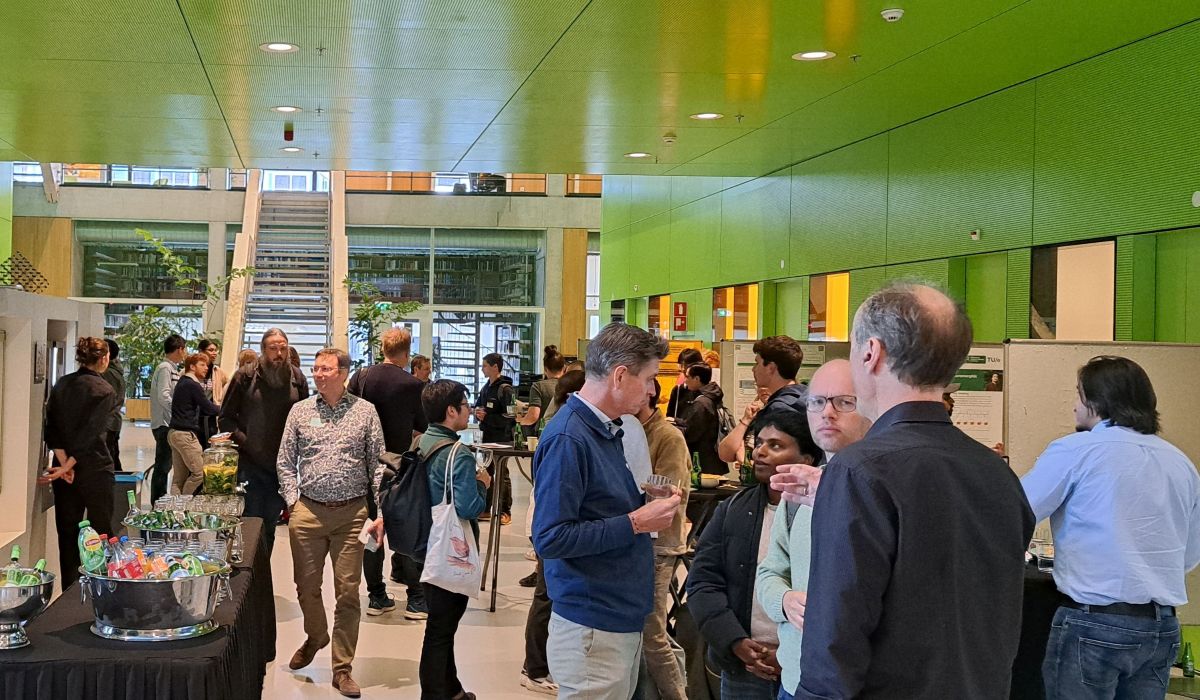Infomatter symposium: taking advantage of information in a system
On Thursday, May 22nd, AMOLF organized the Infomatter Symposium to discuss exciting developments in information processing — ranging from biochemical to mechanical and optical systems. What these systems share is that they do not rely on conventional computers. This is a significant advantage, given that the energy cost of computing is rising much faster than that of energy production.

Among the AMOLF PhD students attending was Daan Mulder (Biochemical Networks) who studies a basic system: a bit that exists in two conditions. He says: “The challenge is to get the system to switch from one condition to the other using very little energy.”
Daan is happy to see that the symposium brings together a variety of researchers working on different systems. For instance, a researcher from Enschede who works on electronics, one from Delft who works on chemical reactions in flies that allow the organism to register stimuli from its environment and others that study systems in test tubes. “What unites us is the nature of the questions we ask: How does a system process information? And how can we make a system perform a task?”
Corentin Coulais (University of Amsterdam), another attendee, focuses on the physics of robotic materials, which are flexible and active. He has a strong interest in pushing the limits of system complexity. For instance, he recently demonstrated how physical principles can be used to create trainable robots, such as a snake-like robot that learns how to take on the shapes that spell the word ‘learn’.


